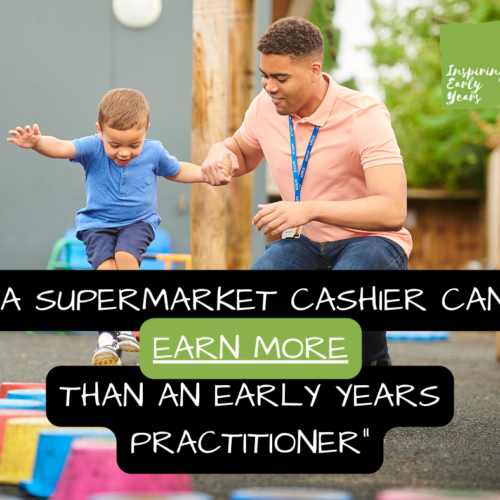As parents and educators, we are constantly seeking ways to provide the best learning experiences for our young children. One approach that has gained significant attention in recent years is outdoor learning. The concept of taking learning beyond the confines of the classroom and into the great outdoors has proven to have numerous benefits for children’s development, particularly from an early years perspective and within a nursery setting.
So, what exactly is outdoor learning? It goes beyond simply taking children outside for a quick run round the garden. Outdoor learning involves using the natural environment as a context for educational activities and experiences. It encompasses a wide range of activities, from exploring nature and engaging in physical play to problem-solving and creative expression.
One of the key advantages of outdoor learning for young children is the opportunity for hands-on, experiential learning. Being outdoors provides a multisensory experience that engages all of a child’s senses. They can feel the texture of leaves, hear the sounds of birds chirping, smell the flowers, see the vibrant colors of nature, and even taste fresh fruits and vegetables from a garden. This sensory-rich environment enhances their learning and helps them make meaningful connections with the world around them.
In an early years and nursery setting, outdoor learning offers unique benefits. It promotes holistic development by nurturing physical, cognitive, social, and emotional aspects of a child’s growth. For instance, outdoor play helps children develop their gross motor skills as they run, jump, climb, and balance on playground equipment. It also stimulates their cognitive abilities as they explore natural materials, observe insects, and experiment with cause and effect in their surroundings.
Furthermore, outdoor learning fosters social interaction and collaboration among young children. As they engage in imaginative play outdoors, they learn to negotiate, take turns, share resources, and communicate effectively with their peers. These social skills are essential for their overall development and future success in relationships.
Nature provides an endless array of opportunities for learning and discovery. Outdoor environments offer countless teachable moments, whether it’s observing the life cycle of a butterfly, identifying different plants and animals, or learning about the changing seasons. These real-world experiences not only deepen children’s understanding of various concepts but also ignite their curiosity and love for nature, fostering a lifelong connection with the environment.
Moreover, outdoor learning has been shown to have positive effects on children’s mental well-being. Being in nature has a calming and therapeutic effect, reducing stress and anxiety. It provides a peaceful and serene setting where children can unwind, recharge, and develop resilience. Research has also suggested that exposure to the natural environment can enhance concentration, creativity, and problem-solving skills.
In the United Kingdom, outdoor learning is embraced and integrated into the early years curriculum. Forest schools, for example, have gained popularity, offering children regular opportunities to explore and learn in woodland settings. These experiences not only support children’s academic learning but also promote their physical health, emotional well-being, and environmental awareness.
In conclusion, the benefits of outdoor learning for young children, from an early years perspective and within a nursery, are abundant. It provides a rich and stimulating learning environment that nurtures holistic development, fosters social interaction, sparks curiosity, and promotes well-being. As parents and educators, let us embrace the wonders of the great outdoors and give our children the gift of outdoor learning.



